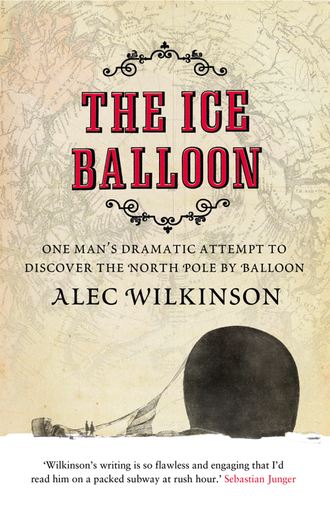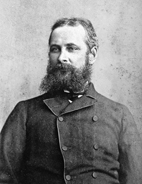
Полная версия
The Ice Balloon
Someone traveling in a balloon never feels the wind, or hears it, because he is advancing at the same speed. Early aeronauts, enclosed in silence, used to feel not so much that they were moving as that the land below them was approaching.
16
While Andrée was in Spitsbergen at the Swedish station, making measurements and shut in darkness, the American delegation to the International Polar Year was on Ellesmere Island, opposite the northern end of Greenland, on Lady Franklin Bay. Their camp was about six hundred miles from the pole, and the northernmost of all the nations’ camps. The twenty-five members lived in a hut which was sixty feet long and seventeen feet wide and which they had built and called Fort Conger, after a Michigan senator named Omar Conger, who had supported Arctic research. The officers—there were four of them—slept at one end, and the enlisted men at the other. The expedition was to make scientific observations and also to search for the Jeannette, which had left to discover the pole in 1879, and disappeared.
The delegation’s leader was Adolphus Greely, who had asserted at Andrée’s talk in London in 1895 that although Andrée might reach the pole, the Arctic winds, which at that elevation blew only north, would strand him, and then said that the congress ought not to support such a plan.

Adolphus Greely
In Three Years of Arctic Service, a fantastically understated title, Greely described some of his comrades at Fort Conger, all of whom had volunteered. Lieutenant Frederick Kislingbury, “in a service of over fifteen years, had a fine reputation for field duty,” Greely wrote. James Lockwood “had served eight years, almost always on the frontier, and was highly recommended as an officer of sterling merit and varied attainments.
“Edward Israel and George W. Rice, in order to accompany the expedition, cheerfully accepted service as enlisted men. The former, a graduate of Ann Arbor University, went in his chosen profession as astronomer, while the latter, a professional photographer, hoped to add to his reputation in that art by service with the expedition. Sergeants Jewell and Ralston had served long and faithfully as meteorological observers; while Gardiner, though of younger service, was most promising. Long and hazardous duty on the Western frontier had inured the greater part of the men to dangers, hardships, and exposure.”
Конец ознакомительного фрагмента.
Текст предоставлен ООО «ЛитРес».
Прочитайте эту книгу целиком, купив полную легальную версию на ЛитРес.
Безопасно оплатить книгу можно банковской картой Visa, MasterCard, Maestro, со счета мобильного телефона, с платежного терминала, в салоне МТС или Связной, через PayPal, WebMoney, Яндекс.Деньги, QIWI Кошелек, бонусными картами или другим удобным Вам способом.




